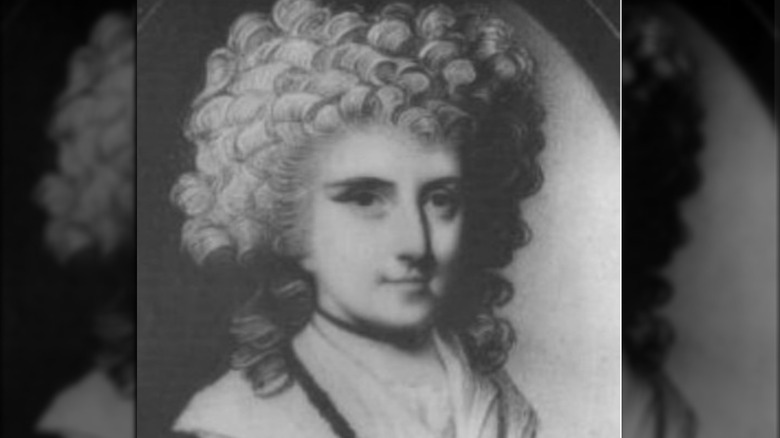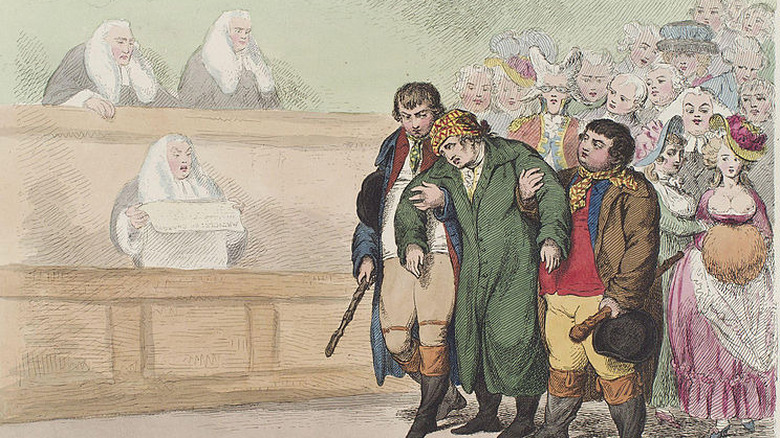The Historical Cruelty Of Andrew Stoney And Mary Bowes' Marriage
At the tender age of 11, Mary Bowes (above) became a wealthy heiress when her father, a coal magnate, died in 1760 (via All That's Interesting). All that he asked was when she married, she would never take another man's last name. It's a promise she kept and when she wed John Lyon, 9th Earl of Strathmore and Kinghorne, he became a Bowes (via Westminster Abbey).
After five children together and nine years of marriage, Lyon died at sea. Bowes, who was pregnant with another man's child, decided she needed to remarry immediately to avoid a scandal. Before she could walk down the aisle with her soon-to-be second husband — the father of her unborn child — Andrew Stoney came into the picture.
Greedy and a known abuser (details Bowes did not know), Stoney was attracted to the heiress' wealth and so he did what he could to dissuade her from marrying her fiance. He failed. Undeterred, he crafted a plan so ridiculous that there was no way it could work — until it did. Stoney published anonymous stories (untrue of course) in a local newspaper that damaged her reputation. He then staged a fake duel and challenged the paper's editor (who was in on the ruse) to defend Bowes' honor.
According to Ranker, Stoney pretended to be mortally wounded in the duel. His dying wish? To see Bowes. Thinking he would be dead in a matter of days, Bowes agreed to marry him. Except, Stoney didn't die, in fact, he was as good as new and soon, Bowes' life became a nightmare.
For the next eight years, Stoney would torture Bowes
Almost immediately, the physical and emotional abuse of Bowes began (via All That's Interesting). He banned her family and friends from visiting and rarely let her leave their home. Moreover, he would repeatedly beat her. Things only got worse when Stoney realized that Bowes' children, and not him, would be the one to inherit her fortune were she to predecease him. Eventually, he got her to sign a document that voided this and gave him total control of her finances and estate.
Bowes became a prisoner in her own home — that is, until some faithful maids conspired to help her (via Ranker). In the dead of night, Bowes escaped as two of her maids staged a fight to distract a guard. Bowes went into hiding for months but was eventually discovered by Stoney and kidnapped. In a stroke of luck, she was discovered and Stoney was sent to prison for his abuse.
In 1789, she filed for divorce. It was a time when divorce was virtually unheard of. Bowes prevailed in court; she was granted the divorce and was allowed to nullify the previous document that had given Stoney control of her estate.
She died in 1800 and was buried alongside Mary Morgan, one of the maids who helped her flee her abusive marriage. According to Westminster Abbey, Stoney and Bowes' had one son, William Johnstone, who died in 1807 while serving the Royal Navy. As for Stoney, the genealogy site Geni relates that he died in prison in 1810, age 62.

